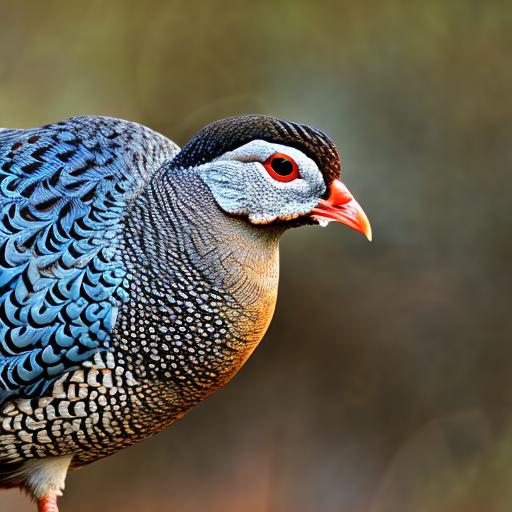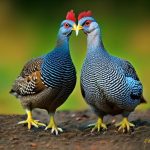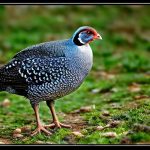Owning chickens can be a great way to naturally control pests in your yard or garden. Chickens are natural foragers and will eagerly hunt and peck for insects, grubs, and other pests. This can help reduce the need for chemical pesticides and keep your outdoor spaces free from unwanted pests. Additionally, chickens can help control weeds by scratching and pecking at the ground, which can be especially helpful in areas with overgrown vegetation. Their natural instinct to hunt and peck makes them excellent at finding and eliminating pests that can damage your plants and crops. By allowing chickens to roam in your yard or garden, you can harness their natural pest control abilities to create a more balanced and sustainable ecosystem.
Owning chickens can also help reduce the presence of ticks and other parasites in your yard. Chickens are known to eat ticks, which can be a great benefit for those living in areas with high tick populations. By allowing chickens to roam freely in your yard, you can help reduce the risk of tick-borne illnesses for both humans and pets. This natural form of pest control can be an effective and environmentally friendly way to manage pest populations without relying on chemical treatments. Overall, chickens can be valuable allies in the fight against pests and can contribute to a healthier and more balanced outdoor environment.
Key Takeaways
- Regular pest control is essential for maintaining a healthy and safe environment for your birds.
- Implementing security measures such as locks and alarms can help protect your birds from potential threats.
- Providing unique sounds, such as music or nature recordings, can enrich the environment for your birds.
- Low maintenance birds are ideal for those with busy schedules or limited time for care.
- Birds with beautiful plumage can add a stunning visual element to your space.
- Social animals thrive in environments where they can interact with other birds and receive attention from their owners.
- Sustainable agriculture practices can help ensure a steady and healthy food supply for your birds.
Security
Chickens can provide an added layer of security for your property. Their natural instincts make them excellent at alerting their owners to potential threats or intruders. Chickens have keen senses and will often sound the alarm if they sense something out of the ordinary. This can be especially helpful for those living in rural or semi-rural areas where security concerns may be more prevalent. The presence of chickens can act as a deterrent to potential intruders, as their noise and commotion can draw attention to any suspicious activity.
In addition to their alertness, chickens can also help keep your property secure by reducing the presence of small rodents and pests that may attract larger predators. By keeping the population of mice, rats, and other small animals in check, chickens can help minimize the risk of larger predators such as foxes or coyotes being drawn to your property. This can be especially beneficial for those living in areas with a higher likelihood of wildlife encounters. Overall, the presence of chickens can contribute to a greater sense of security and peace of mind for property owners.
Unique Sounds
Chickens are known for their unique and varied vocalizations, which can add a charming and lively ambiance to any outdoor space. From clucking and crowing to squawking and purring, chickens have a wide range of sounds that they use to communicate with each other and their owners. These sounds can create a pleasant and soothing atmosphere, especially for those who enjoy the sounds of nature. Additionally, the presence of chickens can add a sense of vitality and liveliness to your outdoor environment, as their vocalizations can be a constant source of entertainment.
The unique sounds of chickens can also serve as a form of natural pest control by deterring potential threats. The loud and distinctive crowing of roosters, in particular, can act as a warning signal to potential predators or intruders. This can help alert property owners to any potential threats and deter unwanted visitors from approaching. Overall, the unique sounds of chickens can add a delightful and dynamic element to your outdoor space while also serving as a practical form of security.
Low Maintenance
Chickens are relatively low-maintenance pets compared to other animals, making them an attractive option for those looking to introduce livestock into their lives. Once you have set up a suitable coop and run for your chickens, they require minimal daily care and attention. Providing them with fresh water, food, and clean bedding is typically all that is required to keep them healthy and happy. Additionally, chickens are adept at finding their own food by foraging for insects, plants, and seeds, which can further reduce the need for daily maintenance.
Chickens are also relatively self-sufficient when it comes to grooming and hygiene. They will often dust bathe to keep their feathers clean and free from parasites, reducing the need for regular bathing or grooming by their owners. Additionally, chickens are hardy animals that are well-suited to a variety of climates and environments, making them relatively easy to care for. Overall, the low maintenance requirements of chickens make them an accessible option for those looking to introduce livestock into their lives.
Beautiful Plumage
Chickens come in a wide variety of breeds, each with its own unique and beautiful plumage. From vibrant reds and oranges to striking blues and greens, chickens can add a colorful and visually appealing element to your outdoor space. Whether you prefer the sleek and iridescent feathers of Mediterranean breeds or the fluffy and ornate plumage of ornamental breeds, there is a chicken breed to suit every aesthetic preference. Their diverse range of colors, patterns, and feather types can add a dynamic and visually captivating element to your yard or garden.
In addition to their aesthetic appeal, chickens’ plumage serves practical purposes as well. Their feathers provide insulation against cold temperatures and protection from the sun, wind, and rain. Additionally, the presence of chickens with diverse plumage can contribute to a greater sense of biodiversity in your outdoor environment. Overall, the beautiful plumage of chickens can add a visually stunning and ecologically beneficial element to your outdoor space.
Social Animals

Chickens are highly social animals that thrive in group settings. They form complex social hierarchies within their flocks and engage in various forms of social behavior such as grooming, preening, and vocalizing. This social nature can make them delightful pets to observe and interact with, as they often display playful and affectionate behaviors towards each other and their owners. Additionally, the presence of multiple chickens can create a lively and dynamic atmosphere in your outdoor space.
The social nature of chickens also means that they benefit from having companionship. Keeping multiple chickens together allows them to engage in natural social behaviors and form strong bonds with each other. This can contribute to their overall well-being and happiness, as they are able to fulfill their social needs within their flock. Additionally, keeping multiple chickens together can help reduce stress and anxiety in individual birds by providing them with a sense of security and belonging within their group. Overall, the social nature of chickens makes them engaging and rewarding pets to keep.
Sustainable Agriculture
Keeping chickens can be a valuable component of sustainable agriculture practices. Chickens produce nutrient-rich manure that can be used as fertilizer for gardens and crops, contributing to soil health and fertility. Their manure is high in nitrogen, phosphorus, and potassium, making it an excellent natural fertilizer for promoting plant growth and productivity. By harnessing the natural waste products of chickens, you can create a closed-loop system that minimizes waste while maximizing agricultural productivity.
In addition to their manure production, chickens also provide a sustainable source of protein through their eggs. By keeping laying hens, you can produce fresh eggs for personal consumption or sale, reducing the need for store-bought eggs that may have been produced through less sustainable agricultural practices. This can contribute to greater food security and self-sufficiency while minimizing the environmental impact of food production. Overall, incorporating chickens into sustainable agriculture practices can help create a more balanced and regenerative agricultural system.
In conclusion, owning chickens can offer a wide range of benefits beyond just providing fresh eggs. From natural pest control to sustainable agriculture practices, chickens can contribute to a healthier and more vibrant outdoor environment while also providing companionship and entertainment for their owners. Whether you are looking to enhance the security of your property or add a visually stunning element to your yard or garden, chickens offer a versatile and rewarding addition to any outdoor space. By harnessing their natural instincts and social behaviors, you can create a more balanced and sustainable ecosystem while enjoying the many delights that chickens have to offer.
If you’re considering adding guinea fowl to your flock, you may be interested in learning about the benefits of keeping these unique birds. In a recent article on PoultryWizard, “5 Reasons to Keep Guinea Fowl,” the author explores the advantages of raising guinea fowl for pest control, their low maintenance requirements, and their entertaining and watchful nature. This insightful piece provides valuable information for anyone considering adding guinea fowl to their poultry setup. Check out the article here.
FAQs
What are the benefits of keeping guinea fowl?
Guinea fowl are excellent at controlling pests such as ticks, flies, and other insects. They also serve as effective alarm systems, alerting owners to the presence of intruders or predators.
Do guinea fowl require special care or housing?
Guinea fowl are relatively low-maintenance birds and can be housed in a simple coop or shelter. They do, however, require protection from predators and access to a secure outdoor area.
What do guinea fowl eat?
Guinea fowl are omnivores and will eat a variety of foods including insects, seeds, grains, and small rodents. They can also be fed commercial poultry feed.
Are guinea fowl noisy?
Guinea fowl are known for their loud calls, which can be a nuisance to some people. However, their vocalizations also serve as an effective alarm system, alerting owners to potential threats.
Can guinea fowl coexist with other poultry?
Guinea fowl can coexist with other poultry such as chickens and ducks, but they may be more aggressive towards other birds during breeding season. It’s important to provide enough space and resources for all the birds to minimize conflict.
Meet Walter, the feathered-friend fanatic of Florida! Nestled in the sunshine state, Walter struts through life with his feathered companions, clucking his way to happiness. With a coop that’s fancier than a five-star hotel, he’s the Don Juan of the chicken world. When he’s not teaching his hens to do the cha-cha, you’ll find him in a heated debate with his prized rooster, Sir Clucks-a-Lot. Walter’s poultry passion is no yolk; he’s the sunny-side-up guy you never knew you needed in your flock of friends!







